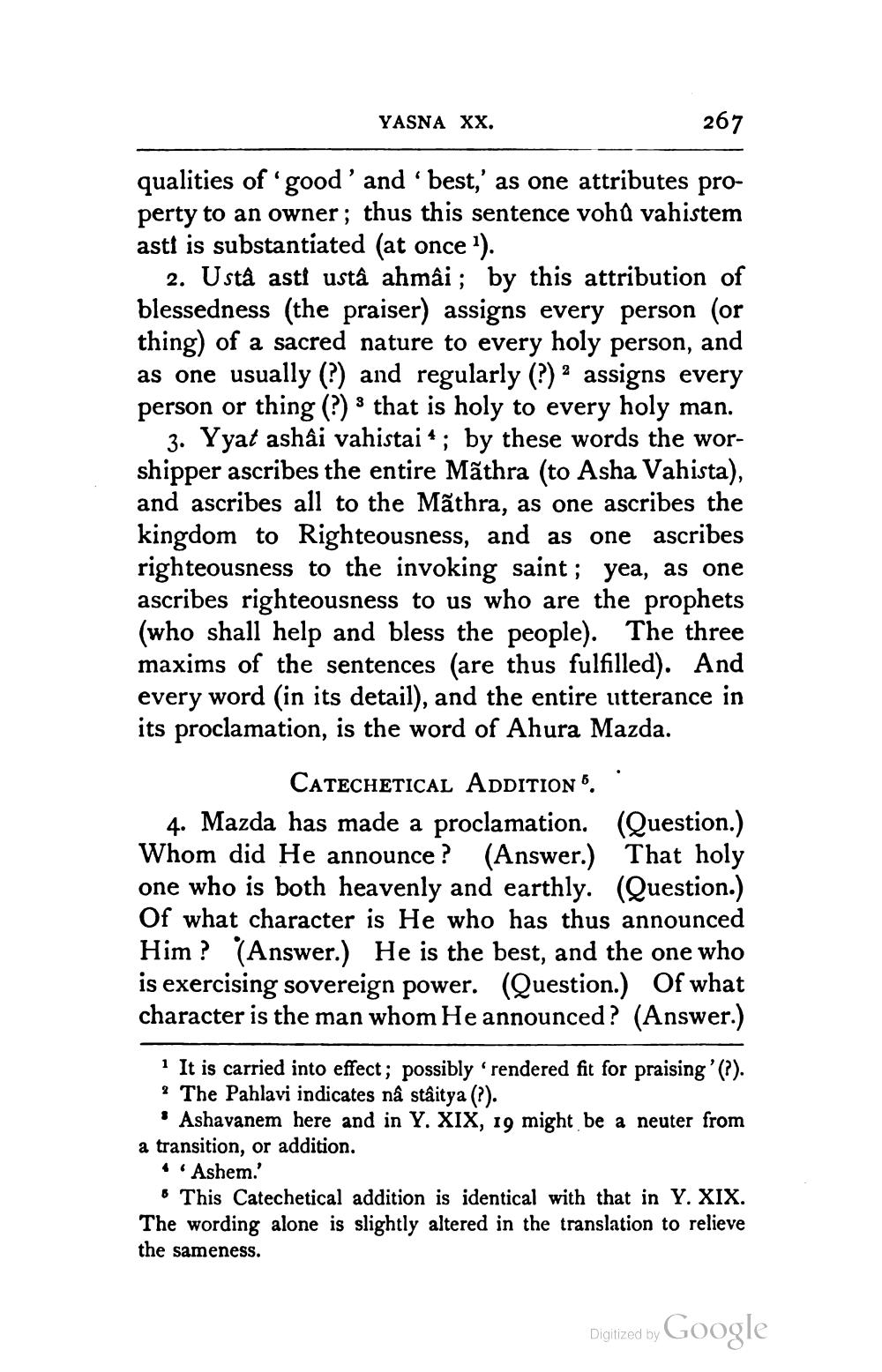________________
YASNA xx.
267
qualities of 'good' and 'best,' as one attributes property to an owner; thus this sentence vohở vahistem asti is substantiated (at once ?).
2. Ustå asti usta ahmâi; by this attribution of blessedness (the praiser) assigns every person (or thing) of a sacred nature to every holy person, and as one usually (?) and regularly (?) ? assigns every person or thing (?) : that is holy to every holy man.
3. Yyat ashâi vahistai - ; by these words the worshipper ascribes the entire Mãthra (to Asha Vahista), and ascribes all to the Mãthra, as one ascribes the kingdom to Righteousness, and as one ascribes righteousness to the invoking saint; yea, as one ascribes righteousness to us who are the prophets (who shall help and bless the people). The three maxims of the sentences (are thus fulfilled). And every word (in its detail), and the entire utterance in its proclamation, is the word of Ahura Mazda.
CATECHETICAL ADDITION". 4. Mazda has made a proclamation. (Question.) Whom did He announce ? (Answer.) That holy one who is both heavenly and earthly. (Question.) Of what character is He who has thus announced Him ? (Answer.) He is the best, and the one who is exercising sovereign power. (Question.) Of what character is the man whom He announced? (Answer.)
1 It is carried into effect; possibly rendered fit for praising'(?). ? The Pahlavi indicates na stâitya
. Ashavanem here and in Y. XIX, 19 might be a neuter from a transition, or addition.
• Ashem.'
* This Catechetical addition is identical with that in Y. XIX. The wording alone is slightly altered in the translation to relieve the sameness.
Digitized by
Digitized by Google




